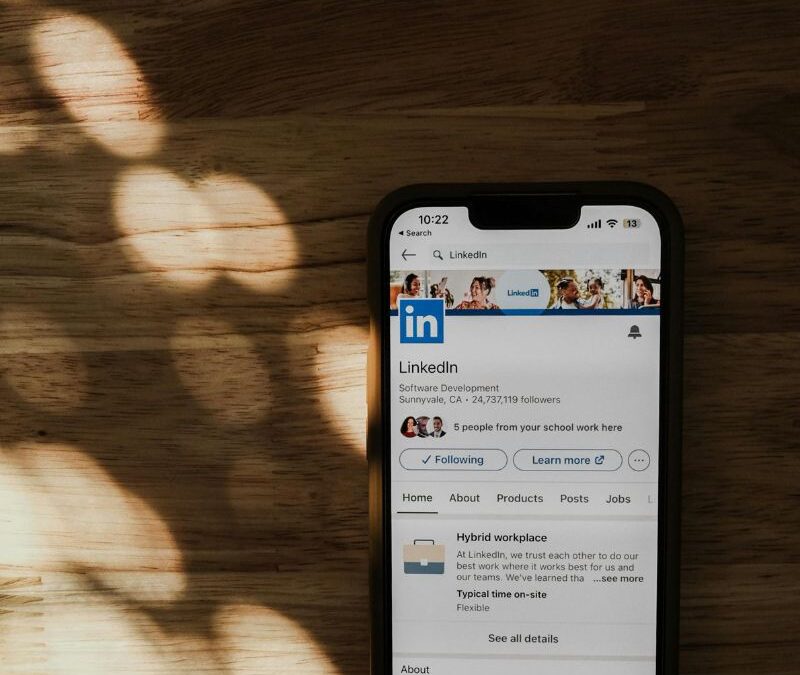LinkedIn has been an excellent tool for my job search clients. It has made it exponentially easier to source and introduce contacts and bridge the gap between candidates and decision makers. Yet whether it is being used for a job search or general sales prospecting, many behaviors persist that run counter to the spirit of networking and limit its value. Here are a few I have noticed.
Posting a message that you know of an open role and then not responding to potential candidates. Maybe people have come to accept this bad behavior when they apply via a job board, but the whole purpose of LinkedIn is to leverage connections to facilitate some sort of introduction. If you don’t have the bandwidth to respond to people, spare everyone the rejection they experience when you ignore their message to you. You will quickly lose credibility if you present yourself as someone open to hearing about qualified candidates and then fail to follow up.
Responding to a first degree connection requesting an introduction to someone in your network linked to an open job by telling them to apply online. The posting process is broken. Applying online is generally a waste of time, particularly at the executive level. If you don’t know your first degree connection well enough to make an introduction, that’s fair. But don’t deny someone an introduction because you think the rules dictate that they post online. Job search is often about going around these so called “processes” that do nothing more than screen eligible candidates out. If you have no intent to actively and openly building relationships, LinkedIn probably isn’t the right platform for you.
Using LinkedIn to vent about a role you were not selected for. It might feel good at first, but I don’t see any world where doing this helps you in the long-term. The same goes for venting about a role you were let go from. Whether it’s fair or not, most people will assume you had some culpability in either decision. It’s not a good look. No one wants to refer a candidate with a case of sour grapes.
Calling people out publicly for posts you deem “unworthy” for LinkedIn. Yes, I’m not a huge fan of the endless surveys and some of the other conversations that seem to have nothing to do with business, but in a real office setting, people are talking about things other than work all the time. It’s how many build connection and trust, and I’m sure even the people condeming these posts talk about things other than work in their office settings. Often it’s the conversations about nothing (or at least nothing work related) that solidify the ties that are the foundation for strong teams.
Using LinkedIn as a platform for your opinions about politics or religion. While it’s true that these topics technically fall into the non-business category above, these two topics in particular are super-charged and polarizing. The reality is that your next sales lead, job lead, or general connection may very well have opposing views to you, but this shouldn’t get in the way of building a relationship on a professional level. Introducing politics and religion can get you on someone’s “do not do business with list” pretty fast.
Turning LinkedIn conversations into arguments. Commenting on people’s posts is a great way to build engagement and share knowledge and expertise. And there is nothing wrong with challenging a poster’s content with some healthy discourse. But negative comments about a poster’s intent or knowledge regarding a certain subject typically don’t go over well and can make you appear contrarian to a large group of the poster’s followers which will work against building your network. Instead of disagreeing with a poster, try countering with another thoughtful viewpoint or opinion. And always keep it professional.
Sending an invite and then immediately pitching a product of service. This is networking 101. Get to know me first, build a relationship, offer something to me without expectation…something other than a sales pitch. I generally delete these connections immediately. They never get a second chance to make a first impression.
Sending a message to pitch a product that would be obviously irrelevant to anyone who spent ten seconds reviewing my profile. See response above.
Requesting a connection and not including a note explaining why you want to connect. LinkedIn has been around for close to 20 years, yet this still seems to be happening. Unless I already know you well or it’s obvious from your profile why we should connect, it’s presumptuous to assume a blind invite is enough…plus it’s lazy.
LinkedIn is a community, and it’s up to all of us to be good citizens. Share information, show genuine interest in others, and be empathic. Your presence here is similar to being a host at a dinner party. The success of the party rests on the unwritten rules of etiquette and the reciprocity of kindness and respect. Let’s not lose that vibe as we host and participate in our conversations on LinkedIn.


